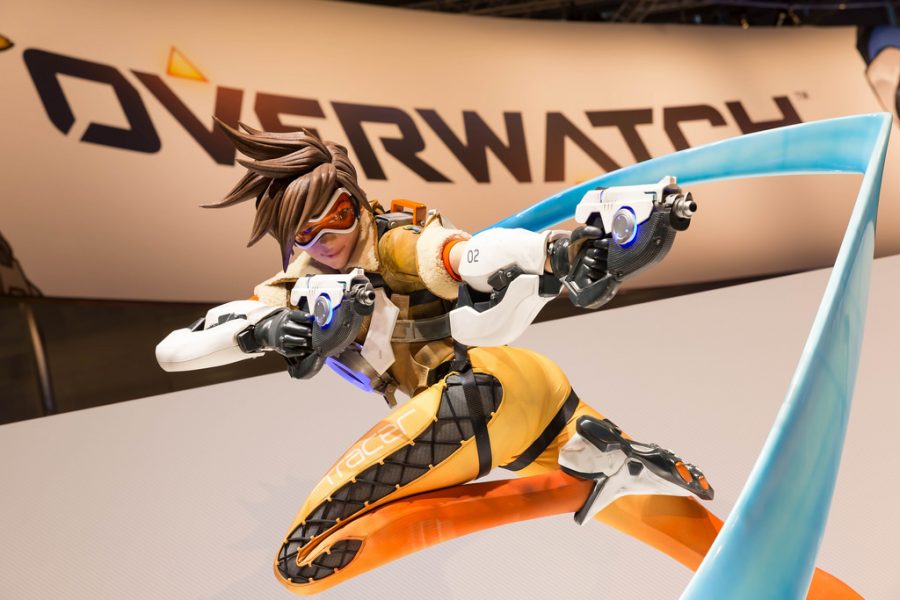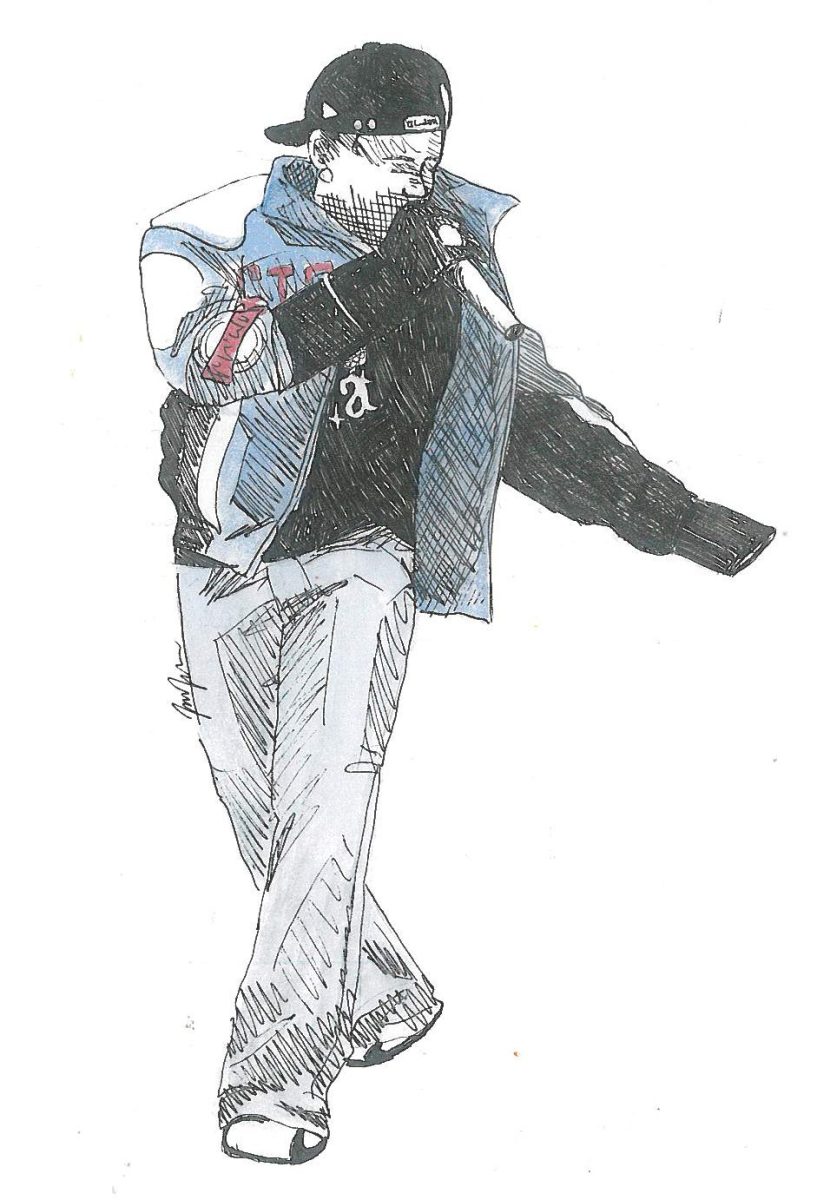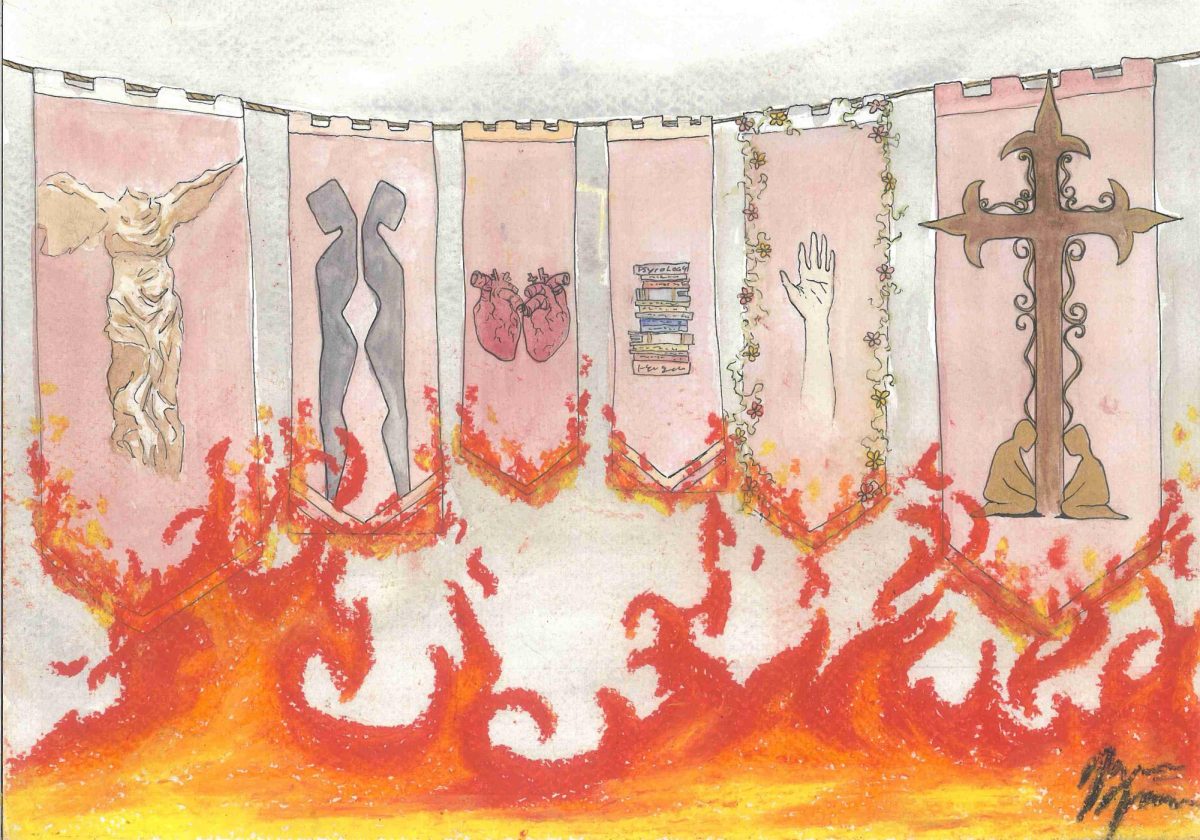The Overwatch character of Tracer has been a subject of controversy due to her queer identity
Until I started playing a fighting game competitively, I had no idea how nasty video game communities can be.
I grew up playing soccer, a game I considered a “real” sport, and had assumed that people who were crazy enough to treat video games as a competitive affair were probably nothing more than timid nerds.
But from my own experience playing Super Smash Brothers Melee competitively, the docile nerd stereotype is largely inaccurate. While there are certainly positive aspects of the competitive video game culture, it has a history of disturbing language using homophobia and transphobia.
If someone loses badly, players say that they were “raped.” If someone plays defensively or annoyingly, they are playing “gay.” While this sort of language has been discouraged recently, it would seem that it is still more prevalent in esports than anywhere else.
Considering the environment which it enters, a game as popular as Overwatch introducing LGBTQIA+ characters is majorly disruptive to gaming culture.
Overwatch, a team-based first-person shooter game, was released in 2016 by Blizzard Entertainment and has earned almost universal acclaim. Though originally intended for casual play, a lucrative competitive scene has developed around the game.
Besides gameplay, Blizzard releases comics and animated shorts to develop a story line around the game, taking place in a near-future earth where heroes band together to restore order to our now dangerous world.
Rather than traditional cut scenes, which are usually used in video games to develop narrative, the personality traits and backstory of the heroes of Overwatch are developed intermittently by Blizzard writers Michael Chu and Alyssa Wong. In 2016, Blizzard announced through a comic that Tracer, a character who appears on the cover of the game, identifies as queer.
Most recently, on Jan. 7 of this year, Michael Chu revealed that the character Soldier 76 had previously had a romantic relationship with a man named Vincent and that both men identified as gay. While the recent announcement of Soldier 76’s sexuality may be influenced by Blizzard’s desire to generate hype around a game decreasing in popularity, the announcement is still significant.
In most other video games that I have seen, a certain masculinity is established that involves the hypersexualiztaion of every figure, human or non-human.
Female characters, more often than not, wear tight fitting clothing with the design to expose or bring attention to cleavage. One dimensional sexualized depictions of women can be seen across genres, from characters in the popular fighting game Street Fighter V (2016) to Lara Croft in the action-adventure game series Tomb Raider (est. 1996) which reinforces gender stereotypes and heteronormative values.
Even male characters conform to hypermasculine standards. Men wear body suits with laughably protruding nipples, the strength of their muscles is inversely correlated with the size of their intellect, and they are usually required to carry a really big gun.
While many of the characters in Overwatch are arguably sexualized in a similar way, Blizzard’s choice to represent gay characters stands in defiance of a masculinity that requires heterosexuality and encourages homophobia.
This version of masculinity is policed by a toxic gamer community that has been accused of homophobia and transphobia. It is not unusual for homophobic slurs to be used, reinforcing a heterosexual masculinity where being gay is an insult.
I have never actually played Overwatch — my prior experience to the game was limited to my floormates in Hill Hall wearing large headphones, frantically moving ergonomic mice and tapping keys on a colored keyboard.
So I decided to ask Andrew Miller, a senior computer engineering major who was by far the loudest Overwatch yeller on the floor, what he thought of canonically homosexual characters in Overwatch and the toxic gaming culture.
While he was indifferent to Blizzard’s decision to include gay characters in their cast (storylines do not affect gameplay), when asked about the stereotype of homophobic gamers Miller had plenty to say.
“I think this stereotype exists because some people who play competitive games get progressively more stressed out by games because they consider it core to their identity. When they do poorly, they get toxic. … To insult other people as much as possible they go for low hanging fruit like race or sexual orientation,” Miller said.
That being said, Miller believed that these sort of players were mostly a “vocal minority.”
However, even if it is a vocal minority that is the homophobic side of esports communities, it is important for the silent majority of the esports community to call out their homophobic, hypermasculine behavior. Players should never use “gay” as a derogatory term without being held accountable.
The same goes for game developers. To create LGBTQIA+ characters would be a distinct new direction for video games, and offer representation to groups who are often marginalized and/pr unnoticed.
It is my hope that Tracer and Soldier 76 are not merely gimmicks but a stepping stone to breaking down a toxic masculinity of hypersexualized characters.






















































































